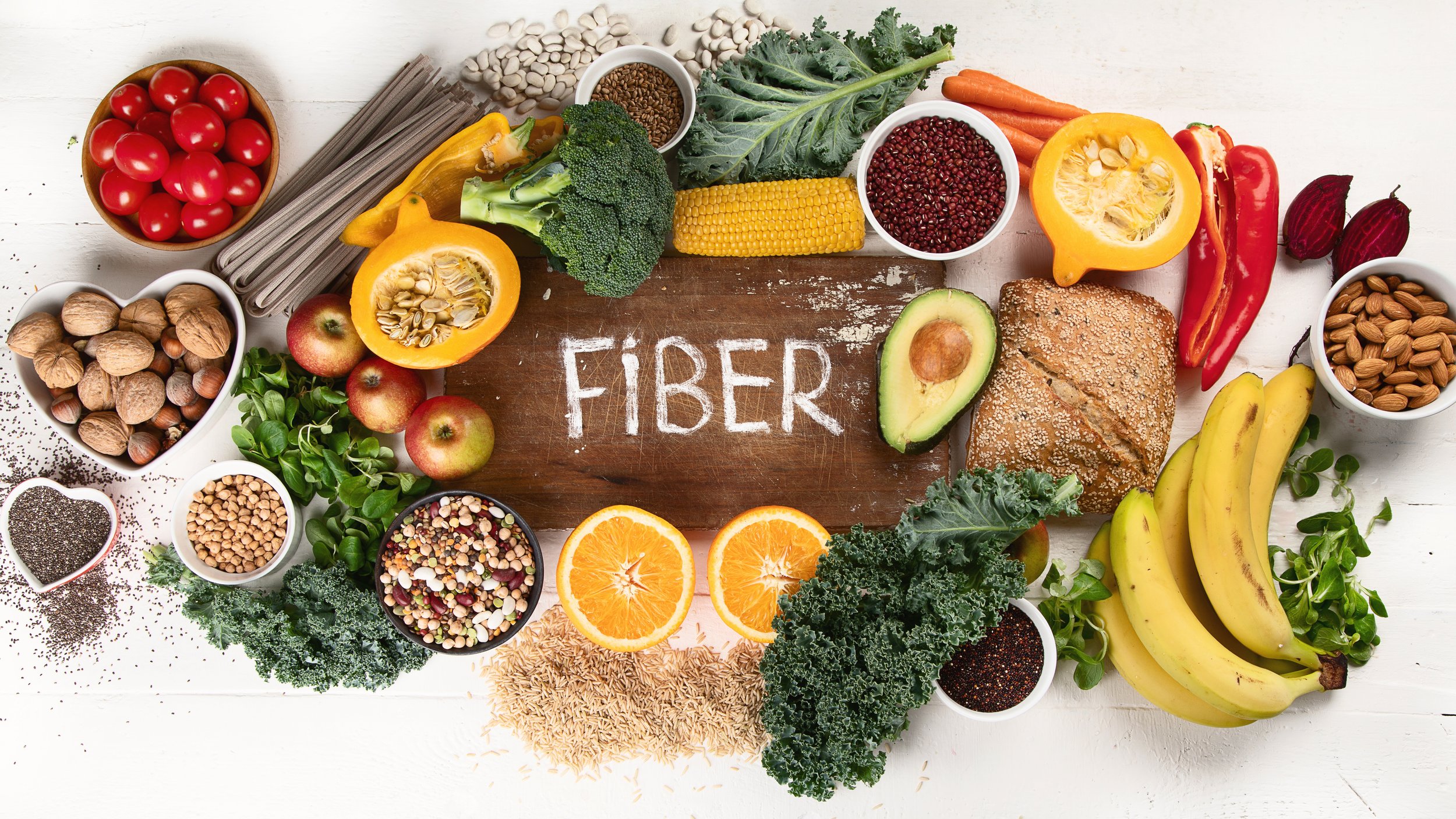Fabulous Fantastic Fiber
There is no such thing as too far. You understand? You push everything as far as you can. You push and you push and you push until it starts pushing back. And then you push some goddamn more.
——Walter Abrams, Two For The Money (2005)
There was a time in my life when my grandma would tell me and I quote “boy eat your roughage,you will thank me later”. Those words would go into one ear and out the other side. I didn’t understand what she meant and my sweet tooth filled with over sweetened kool aid and twinkies didn’t care. One day in my early thirties constipation came a knocking as they say and a new appreciation of health was born. It wasn’t pretty for me then and if you have it now. Let’s just say I know how you feel. There is hope though.
So let’s get into the unsung hero of healthy eating: fiber. It’s the quiet workhorse that keeps your body running smoothly, and trust me, once you know all the ways it helps you, you’re going to want more of it in your life. But first, let’s break it down.
Types of Fiber: Soluble and Insoluble
Fiber comes in two forms, and both are equally important. Soluble fiber dissolves in water and forms a gel-like substance in your gut. It’s a superstar when it comes to slowing down digestion, which is great for keeping your blood sugar stable and your heart healthy. Think of it as the pace car for your digestion, making sure everything moves along steadily and smoothly. You’ll find soluble fiber in foods like oats, beans, apples, and carrots.
Then there’s insoluble fiber, which doesn’t dissolve in water but adds bulk to your stool. That’s right, it helps keep things moving through your digestive system like a natural broom, sweeping out waste and preventing constipation and leaving your intestines and colon squeaky clean. Foods like whole grains, nuts, and veggies like cauliflower are packed with insoluble fiber.
Fiber’s Benefits: Beyond Digestion
Fiber does a lot more than just keep you regular—although that’s a big part of its charm. Here’s a rundown of all the ways fiber benefits your body:
1. Weight Control: Fiber makes you feel fuller for longer, which means you’re less likely to snack or overeat. It’s like a built-in appetite controller
2. Heart Health: Soluble fiber can help reduce LDL (“bad”) cholesterol by absorbing it before it enters your bloodstream, which lowers your risk of heart disease.
3. Blood Sugar Stabilizer: Because fiber slows the absorption of sugar, it helps prevent spikes in your blood sugar, which is especially important for those managing diabetes or prediabetes.
4. Digestive Health: Fiber keeps your digestive system functioning smoothly, preventing constipation and reducing the risk of hemorrhoids.
5. Colon Cancer Prevention: Fiber acts like a detox for your colon, sweeping away toxins and harmful substances, which lowers your risk of colon cancer.
6. Removing Toxins: Fiber helps your body eliminate toxic metals and poisons, keeping your system clean and healthy.
Refined Foods: Fiber’s Enemy
Now, let’s talk about refined foods. These are your white breads, pastries, and processed snacks. The problem? They’ve had most of their fiber stripped away, which means they lack the magic that keeps your digestion slow and steady. Without fiber, sugar is absorbed more quickly into your bloodstream, leading to those dreaded blood sugar spikes and crashes. Refined foods might taste good in the moment, but they leave your body wanting more—and not in a good way.
Fiber as a Disease Fighter and Anti-Aging Agent
Fiber isn’t just great for daily health; it’s a powerful disease prevention agent. High-fiber diets have been linked to a lower risk of serious conditions like heart disease, type 2 diabetes, and even certain cancers, particularly colon cancer. Plus, fiber helps regulate your cholesterol levels, reducing your chances of plaque buildup in your arteries.
And when it comes to anti-aging, fiber plays a key role. By improving digestion and keeping your system clear of toxins, it supports healthier skin, more energy, and better overall longevity. A well-fed gut means a well-fed body, and that translates to feeling younger, longer.
How Much Fiber Do You Need?
For men over 50, the recommended daily intake is 30 grams of fiber. For women over 50, it’s 21 grams. And here’s the thing—you need to increase your fiber intake gradually. Suddenly loading up on fiber can shock your system and leave you bloated and uncomfortable. Instead, add fiber-rich foods slowly and make sure to drink plenty of water. Fiber needs water to work its magic.
Natural Sources of Fiber
So where do you get all this fiber? Here’s the good news: fiber is only found in plant-based foods. Load up on whole grains, fruits, vegetables, nuts, seeds, beans, legumes, and yes, even algae. These foods are packed with both soluble and insoluble fibers that support every part of your body.
Fiber Supplements?
If you’re struggling to get enough fiber from food, you can consider a supplement, but remember: food sources are always better. Supplements can help, but they won’t give you the full range of nutrients that come naturally from fiber-rich foods.
In Conclusion
Fiber is the powerhouse you need to prioritize. It supports heart health, keeps your digestion on track, helps control weight, stabilizes blood sugar, prevents obesity, improves your mood, and even helps remove toxins from your body. Plus, by eating fiber-rich foods, you’re lowering your risk of colon cancer and boosting your longevity. So grab those fruits, veggies, and whole grains—your body will thank you and I get to say once again, THANKS GRANDMA!

